Immortality Review — A Most Unusual Camera
The latest game from Sam Barlow and Half Mermaid builds on what you’ve come to expect while also subverting its own genre in clever ways.
By
Mark Delaney
on
There’s a moment in movies where a restless, investigative protagonist falls down a proverbial rabbit hole and unveils a startling truth, reframing everything they thought they knew. The allure of Immortality, much like other games from Sam Barlow and Half Mermaid, is that it casts the player in this exciting role and builds to its ultimate unveiling. It’s borderline impenetrable at times, as both the basic A to B plot and its greater themes are much more opaque than the team’s prior puzzles. And yet, it’s not really worse off for it. Despite—and sometimes because of—the dizzying effect of falling down the rabbit hole, Immortality becomes another standout narrative. It’s similar to its predecessors, Telling Lies and Her Story, in some key ways, but more thought-provoking, too, and certainly more unnerving than you’ll be prepared for.
Writing this review has proven difficult because virtually all of the game feels like a spoiler. I can allude to things, such as the game being scarier than I would’ve guessed, but I can’t really tell you why. I can vaguely mention the story’s dramatic turns, but given the scattered timeline, you may not see certain moments yourself until long after I did.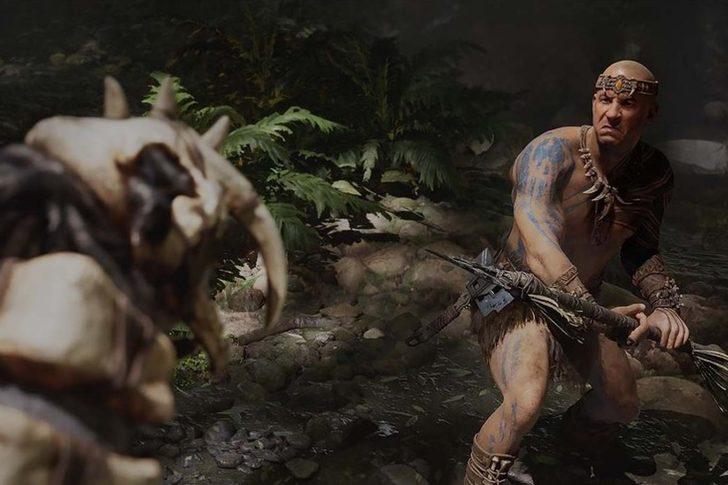 I can at least explain how this game works, because if it’s the first time you’re experiencing a game from this small team, it’s going to feel completely alien.
I can at least explain how this game works, because if it’s the first time you’re experiencing a game from this small team, it’s going to feel completely alien.
In the early hours, Immortality’s plot will likely feel elusive.
Playing Immortality is like operating an old-fashioned Moviola machine, once used by editors in filmmaking but now repurposed to let you scrub through hours and hours of vintage live-action movies in an attempt to solve a mystery: What happened to Marissa Marcel? As a fictional 17-year-old actor making her movie debut in late ’60s Hollywood, Marissa was primed to be the Next Big Thing, but over the next 31 years, she would only be cast in three movies, and none of them ever saw release.
Figuring out the why of the matter is up to you, and using this Moviola machine, you’ll rewind, fast-forward, pause, and zoom in on any detail of your choosing in any given scene. Doing so will bring up a similar image from elsewhere in the archives, so in one moment, clicking on Marissa’s face when she’s portraying Matilda in 1968’s Ambrosio may bring you to a table read for 1999’s Two of Everything. Clicking on the same scene at another point, including even on Marissa’s face in a different frame, may bring you to 1970’s Minsky instead.
Clicking on the same scene at another point, including even on Marissa’s face in a different frame, may bring you to 1970’s Minsky instead.
You can’t foresee where the Moviola machine will take you next, but you’ll soon understand that it’s best to explore faces and objects that seem interesting to you. The point is to keep finding new scenes by clicking on different things, and then clicking on elements of those new scenes to find more scenes. As you watch more and more footage, you’ll start to piece together the larger story yourself.
These three movies are intermixed without any sorting beyond the dates on which they were recorded, but it’s enough to start to form the multi-layered narrative across several hours of playing. On one level, it’s necessary to figure out what the three movies are each about, because doing so informs the cast and crew’s mindsets, their artistic inspirations, and maybe their darker sides. But the footage you’ll uncover extends past the movie scenes themselves.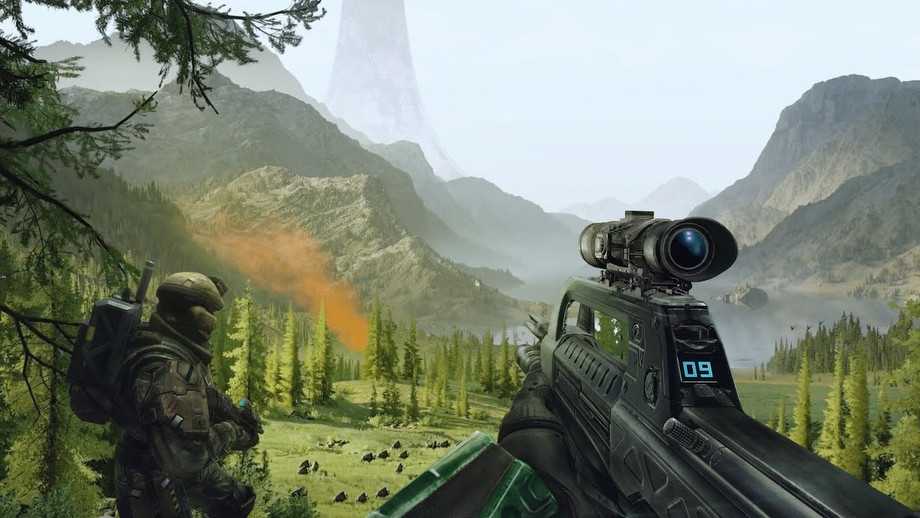 It also includes auditions, behind-the-scenes moments, and, well, you’ll see.
It also includes auditions, behind-the-scenes moments, and, well, you’ll see.
Like Telling Lies and Her Story, things you think you’ve come to understand will routinely be undermined by information you learn as you continue digging. Each recontextualization feels like a startling end to a chapter in a great book. Is this a crime drama? A horror story? A love story? It’s a bit of all three—and more—at different times. It plays like most literature reads, in that it’s more concerned with its underlying themes than its plot.
Immortality’s no-wrong-answers approach to unraveling its many threads is perhaps less rewarding here than in past Half Mermaid games, on account of how confounding it remains right up to the very end. But it’s more riveting for the same reason and left me dwelling on what I saw versus what it wanted me to understand. I don’t feel Immortality intends to be a game that leaves players misunderstanding what happened, but because it has a definitive end point, you can reach its conclusion with less clarity than someone else who played for the same number of hours.
Immortality delights in being a puzzle with missing pieces.
Gallery
The footage from 1968 and 1970 feels incredibly authentic, with film grain, muffled audio, dated camera techniques, and authentic set dressing to send players virtually traveling through spacetime. Though the 1999 movie is much more recent and thus requires a much different approach than the other movies, it too manages to feel like a time capsule from a bygone generation.
Performances across the board are excellent, and by working with unknown actors, Half Mermaid smartly keeps players from being distracted by recognizable faces. Marissa is said to have disappeared, after all. The illusion of a mystery waiting to be solved doesn’t work as well if it’s Anya Taylor-Joy performing the role of the vanished actor.
When you consider that each actor in the game is playing as many as three or four characters across the whole timeline, it’s really unlike anything else that’s been done before in games, even among the team’s prior works. The general opinion of live-action games is that they come off as awkward half-movies, half-games that do neither medium justice. For the third time, Sam Barlow’s team defies that stereotype with a thoughtful script, brilliant actors, and a player-driven Pandora’s unboxing.
The general opinion of live-action games is that they come off as awkward half-movies, half-games that do neither medium justice. For the third time, Sam Barlow’s team defies that stereotype with a thoughtful script, brilliant actors, and a player-driven Pandora’s unboxing.
There are moments in this game about which I can’t go into detail, but they are the main reason I’ve given this game the high score you see below. The first time I came upon an example of a particular game mechanic, I jumped out of my seat with excitement, alerting my wife that what I thought Immortality was going to be had dramatically changed in an instant. Even once I learned how Immortality works, it continued to surprise me with what it would show me, what it would tell me, and best of all, what it would refuse to tell me, leaving me to dwell on it long after I finally discovered Marissa’s fate.
Mark Delaney on Google+
View Comments (10)
Back To Top
The Stanley Parable: Ultra Deluxe Review — A Sequel In All But Name
The Stanley Parable: Ultra Deluxe follows up the original 2013’s strong narrative theme with an intriguing brand-new one.
By
Jordan Ramée
on
It’s incredibly bold to hide away a sequel to a game in an expanded re-release of the original experience. But when it comes to something as enjoyably strange and hilariously obtuse as The Stanley Parable, it makes sense—in fact, my belief that The Stanley Parable: Ultra Deluxe would be anything else seems fundamentally foolish in hindsight.
Ultra Deluxe is as intriguing to play as the original game, perhaps even more so today given that its message is directed toward the modern-day gaming landscape. Some of the nuances will be a bit lost on you if you weren’t playing games or at least paying attention to the space back in 2013, as it relies on having a grasp of how the conversation surrounding games has evolved in the past decade. But, it’s an entertaining experience regardless of if you have that context or not.
Though it’s presented as a kind of director’s cut of the original, Ultra Deluxe feels more like a sequel that exists within The Stanley Parable. You’re still kicking things off by embodying the role of Stanley, an employee with the meaningless role of sitting in a drab office and staring at his computer screen all day, pushing the buttons on his keyboard that he’s told to. And then one day his screen stops telling him what to do, gifting him with the freedom to listen to the overbearingly haughty narrator that oversees his every move or to do as he wishes instead.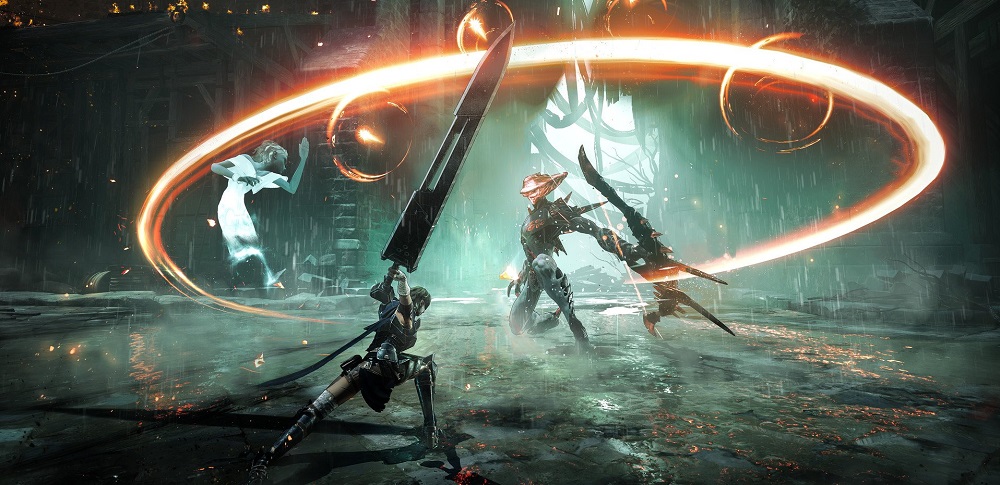
Of course, it’s not really freedom. When given the option of walking through a door to the left or the right, Stanley isn’t being given an option at all—he’s being funneled down one of two possible paths, each of which can branch into several predetermined outcomes. Upon reaching any of these conclusions, the game resets to the beginning, allowing you the chance to try a new path and uncover another outcome.
It’s all meant to reflect the illusory sense of choice the player is presented with when they play any game that’s advertised as a «choice-driven narrative.» This was a far more intriguing narrative set-up back in 2013, when such self-reflection in video games wasn’t entirely common and the game design choices it commented on were more prevalent. In 2022, it now feels like we’ve already had this conversation. The industry has since built upon this topic to create games that comment on a specific experience through some level of retrospection on the theme of choice and how it works within a medium where the recipient of the message isn’t a passive observer—like the notion of code-switching and adopting new speech patterns in Signs of Sojourner or investigating power and privilege through varying degrees of autonomy in Disco Elysium.
Gallery
I wouldn’t go so far as to say that this makes the opening minutes of Ultra Deluxe boring, but it isn’t a great first impression for first-timers either, given how outdated the commentary can feel. For a little while at least, you’re just playing the original game—which is no longer as unique as it once was—making the opening runs through Ultra Deluxe feel a bit outdated.
Thankfully, you can just skip straight to the new content if you want, with the game giving you the option right off the bat. If you choose not to you’ll need to play through The Stanley Parable a number of times and see a few of its different endings in order to unlock the new content.
Much of the new content plays similarly to The Stanley Parable, allowing you to follow the narrator’s instructions or do the opposite. You can press the button or not press the button. You can jump or not jump. You can carry the bucket or not carry the bucket (you should carry the bucket). Your choices will cause the story to branch, allowing you to reach several different endings—some are immensely entertaining variations on how the experience could already conclude in The Stanley Parable, while others are brand-new. All of them are rewarding to uncover, with some surprises tucked into a few.
Your choices will cause the story to branch, allowing you to reach several different endings—some are immensely entertaining variations on how the experience could already conclude in The Stanley Parable, while others are brand-new. All of them are rewarding to uncover, with some surprises tucked into a few.
Gallery
The main crux this time around is how the illusion of choice is redirected to encompass the gaming industry more as a whole. Since 2013, the relationship between developers and players has changed, with bad faith players realizing they can weaponize social media to demand changes to games, and developers learning the never-before-needed skillset of balancing the desires of an insatiable playerbase and their own artistic vision when any possible change can potentially be achieved through an online update. It truly brings a brand-new, almost horrifying meaning to The Stanley Parable’s tagline phrase «The end is never the end is never the end…»
It’s a compelling concept to explore: The idea that whether a developer listens to their players is just as arbitrary as whether a player decides to go through the door they’re told to when playing a game.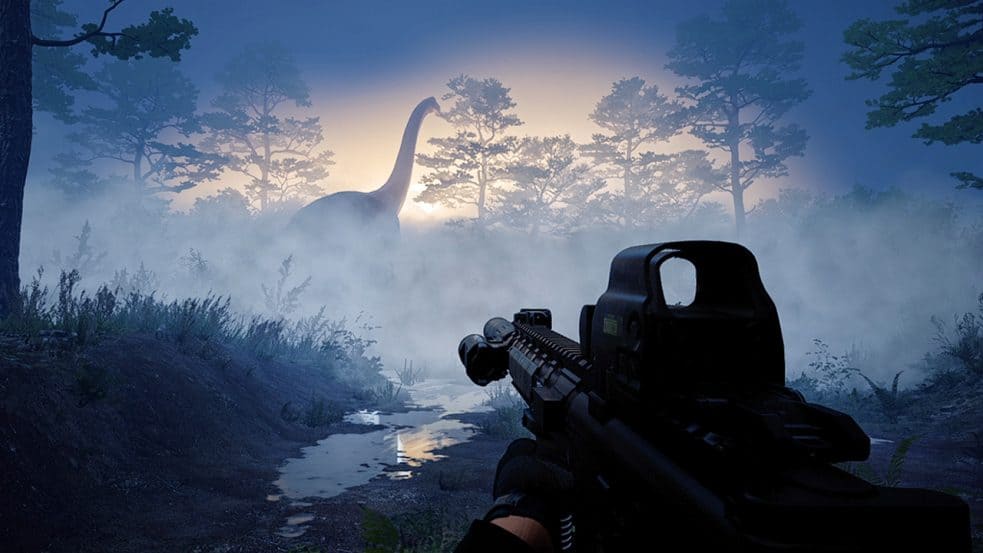 The Stanley Parable sort of broached this back in 2013, when some of its endings implied that the illusory sense of choice in games could be extended to other forms of interactions, like your role in the workplace or conversations at home with your family.
The Stanley Parable sort of broached this back in 2013, when some of its endings implied that the illusory sense of choice in games could be extended to other forms of interactions, like your role in the workplace or conversations at home with your family.
Ultra Deluxe just focuses that idea on game development and then runs with it, delivering an experience that’s hilariously funny, but can also be spooky or tragic. And I dare say that some of the new endings feel almost wistful. Regardless of their tone, what I’ve seen thus far has convinced me that I need to keep playing this game and see what other outcomes I can uncover.
To say any more about this game could potentially spoil some of its delightful surprises (of which there are many). The Stanley Parable: Ultra Deluxe has taken me on a rollercoaster of emotions—I’ll be scratching my head in confusion one moment and then staring at my TV dumbfounded, my mouth agape in incredulous bemusement the next. As far as I can tell, there’s no unifying mystery to solve here; nor is there any sort of indistinguishable moral lesson that the game is asking me to uncover. What is there, however, is an attractive lure for a thought-provoking experience about video games, and how our reception of them has evolved.
As far as I can tell, there’s no unifying mystery to solve here; nor is there any sort of indistinguishable moral lesson that the game is asking me to uncover. What is there, however, is an attractive lure for a thought-provoking experience about video games, and how our reception of them has evolved.
View Comments (2)
Back To Top
The most poorly optimized PC games of 2022
The following games really let us down (technically), and they can be considered the worst optimized games that came out on PC in 2022.
Non-PC-optimized game cannot scale well on multiple CPU cores, suffers from «console» side effects (such as very low FOV, controller-only on-screen indicators, terrible controls on KM, and mouse acceleration/smoothing issues) . Also taken into account were the stuttering issues that affected many PC games in 2022.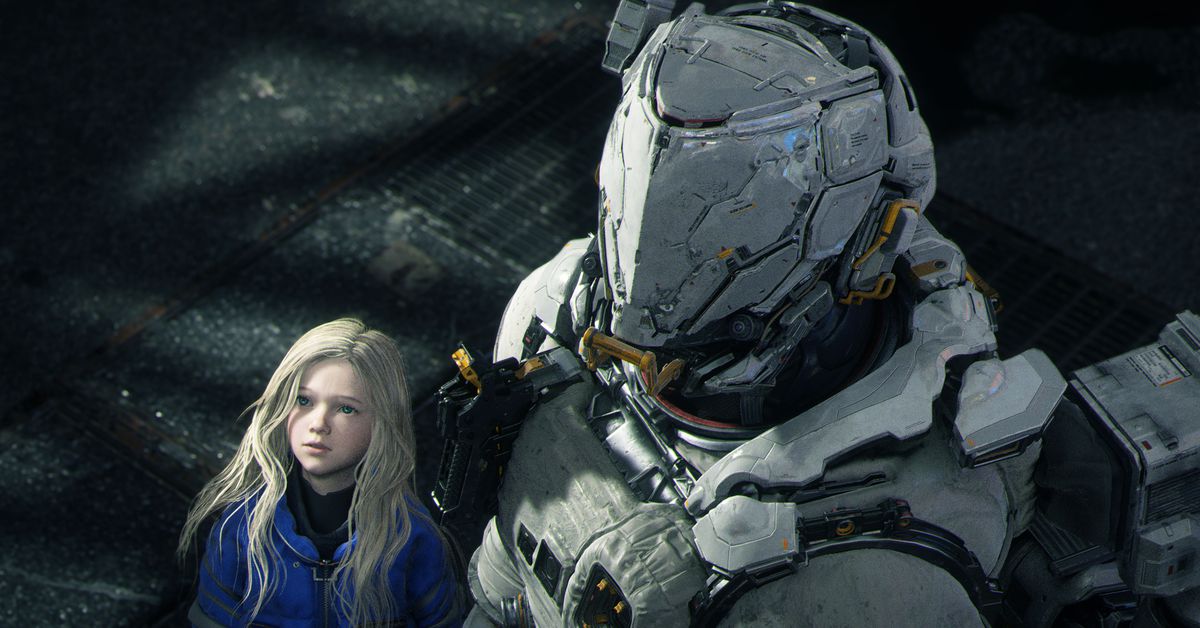 Also, a game that doesn’t live up to its GPU demands also makes it to this list.
Also, a game that doesn’t live up to its GPU demands also makes it to this list.
Also note that the latest versions of the games were evaluated, not the launch versions. Finally, this is a selection, not a TOP, that is, the games are in random order.
Next Generation The Witcher 3 Update
Many have been eagerly waiting for the next generation version of The Witcher 3. However, TW3NG is currently in a really terrible state. The game has serious issues with CPU optimization. Because of these issues, even high-end processors can get below 60 fps when ray tracing effects are enabled. Also, there are visual glitches that can occur with RT shadows and reflections. And, let’s be honest here, the only notable thing about the update is the ray tracing effects. Otherwise, PC gamers can use the old version (which also runs significantly faster) and modify it to look even better than the DX11 version of The Witcher 3 Next-Gen.
The Callisto Protocol
The Callisto Protocol is another disappointing game. At launch, the game had major optimization issues on PC. Luckily, Striking Distance Studios has been able to improve things, and the game is enjoyable without the ray tracing effects. However, ray tracing effects reveal optimization issues that the game still suffers from. Like The Witcher 3 Next-Gen, Callisto Protocol cannot take advantage of multiple CPU cores/threads. So the game often drops below 60fps even on high end CPUs/GPUs. The game also does not support DLSS 3, meaning that there is currently no PC system that can run it at a constant 60fps with RT. And again, this is mainly due to low CPU usage.
At launch, the game had major optimization issues on PC. Luckily, Striking Distance Studios has been able to improve things, and the game is enjoyable without the ray tracing effects. However, ray tracing effects reveal optimization issues that the game still suffers from. Like The Witcher 3 Next-Gen, Callisto Protocol cannot take advantage of multiple CPU cores/threads. So the game often drops below 60fps even on high end CPUs/GPUs. The game also does not support DLSS 3, meaning that there is currently no PC system that can run it at a constant 60fps with RT. And again, this is mainly due to low CPU usage.
It’s funny at this point, but here’s another AAA game that can’t take advantage of multiple CPU cores/threads. When it was released, Gotham Knights had major issues with stuttering and CPU optimizations. Warner Bros recently released a patch that minimized the game’s stuttering, however there are still frame rate drops and frame sync issues. However, this latest version is at least better than the stuttering starter version.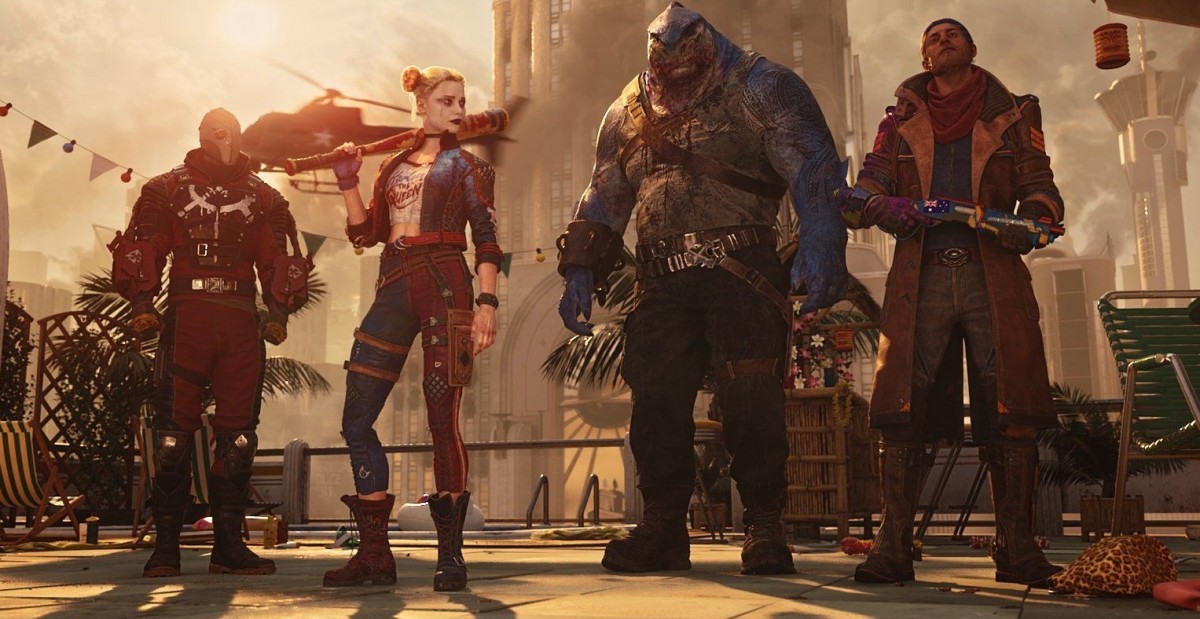 However, things go wrong as soon as you enable ray tracing effects. As with The Witcher 3 Next-Gen and The Callisto Protocol, these RT effects cause extra CPU usage and reveal CPU optimization issues in the game.
However, things go wrong as soon as you enable ray tracing effects. As with The Witcher 3 Next-Gen and The Callisto Protocol, these RT effects cause extra CPU usage and reveal CPU optimization issues in the game.
DYNASTY WARRIORS 9 Empires
Well, we all foresaw this. After all, we are talking about KOEI Tecmo. DYNASTY WARRIORS 9 Empires has terrible camera mouse controls and is unnecessarily demanding at 1440p and 4K resolutions.
Syberia: The World Before
When Syberia: The World Before was released in March 2022, it had serious performance issues on NVIDIA hardware. Below you can find a screenshot showing the RTX4090 pushed to its limits at 1440p/max settings. Take a close look at GPU usage and frame rates. This game runs and looks worse than other open world games that use ray tracing. The fact that both NVIDIA and Microids left the game in this state speaks volumes about its terrible state after launch.
Stranger of Paradise Final Fantasy Origin
Stranger of Paradise Final Fantasy Origin continues to suffer from serious performance and optimization issues on PC. The game experiences severe framerate drops during combat, especially when using finishing moves. There are also numerous frame rate issues. Yes, Team Ninja has added support for DLSS 2, however this hasn’t solved any of the aforementioned issues.
The game experiences severe framerate drops during combat, especially when using finishing moves. There are also numerous frame rate issues. Yes, Team Ninja has added support for DLSS 2, however this hasn’t solved any of the aforementioned issues.
Saints Row
Saints Row is currently in fair condition. The game suffers from some unoptimized scenes and the mouse controls feel very odd. And while the game doesn’t require a high-end CPU, its visuals don’t justify the high GPU requirements. Are there also serious issues with pop-up shadows? which Volition has not yet decided.
Steelrising
Steelrising has serious optimization problems. While the game does not require a high performance CPU, it definitely requires a powerful GPU even at 1080p. Not only that, ultra textures at 1080p require more than 13 GB of VRAM. And to be honest, these ultra textures are similar to what we’ve seen in other games that use far less VRAM, even at 4K. Moreover, there is nothing on the screen that would justify its high demands on the GPU. Yes, Spiders is a small team, so you can’t expect miracles from it. However, the team should just abandon the Silk Engine if they can’t optimize it properly.
Yes, Spiders is a small team, so you can’t expect miracles from it. However, the team should just abandon the Silk Engine if they can’t optimize it properly.
ELEX II
Although ELEX II does not require a high performance CPU, it certainly does not justify its huge GPU requirements. And, unlike other games, ELEX II doesn’t even support DLSS 2 in order to somehow improve the overall performance.
Destroy All Humans! 2 — Reprobed
Destroy All Humans! 2 — Reprobed uses Unreal Engine 4 and has severe stuttering issues. Not only that, the game can’t take full advantage of multiple CPU cores/threads. Yes, it’s Gotham Knights and The Callisto Protocol again. To Black Forest Games’ credit, DLSS 3 support has been added, which greatly improves CPU performance on RTX40 series GPUs. However, developers should not rely on NVIDIA DLSS 3 technology and quit. Instead, they should optimize their games for everyone, plain and simple.
Named the most popular computer games in Russia (November 5, 2022)
Information technology
Computer games
El Dorado
M Video
November 5, 2022, 15:29
Cyberpunk 2077 has become the best-selling game in M. Video-Eldorado this year «boxed» console games based on the results of their own sales for the nine months of this year. The leaders in terms of the number of copies sold are still the PlayStation 4, the bestseller for this platform is Cyberpunk 2077, according to the retailer’s website.
Video-Eldorado this year «boxed» console games based on the results of their own sales for the nine months of this year. The leaders in terms of the number of copies sold are still the PlayStation 4, the bestseller for this platform is Cyberpunk 2077, according to the retailer’s website.
Related article:
Playful enthusiasm
“Cyberpunk 2077 has consistently enjoyed the greatest demand among PlayStation 4 owners throughout the year, while FIFA 22 has been in the top three in unit sales. Over the course of nine months, the second line was taken by the exclusive «Horizon Forbidden West», only in the third quarter «Mortal Kombat» X. Hits PS». «The Last of Us Part II» came in at number four. Grand Theft Auto V rounded out the top five in total sales this year, Minecraft VR – only in July-September,” M.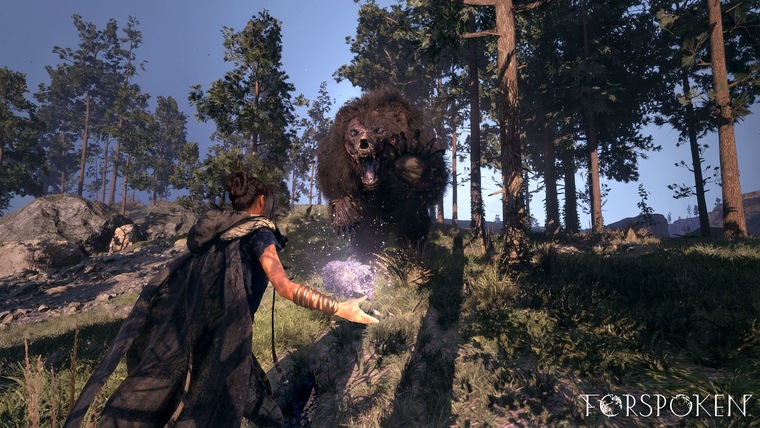 Video-Eldorado reported.
Video-Eldorado reported.
The retailer also noted an increase in interest in PlayStation 5 titles. Sales almost quadrupled due to the expansion of choice and increase in the number of console owners. The leaders are Horizon the Forbidden West and Uncharted: Legacy of Thieves. Collection». The best-selling game for the Nintendo Switch was Ring Fit Adventure, while the best-selling game for the Xbox was Dying Light 2: Stay Human. Open-world hardcore action-RPG Elden Ring and fighting game Mortal Kombat 11: Ultimate were also in the top 5 for PlayStation 5 this year, followed by action game Nioh Collection and FIFA 22 in the third quarter.0003
The retailer’s press release also states that one in six games sold was on the Nintendo Switch, with exercise role-playing game Ring Fit Adventure and The Legend of Zelda: Skyward Sword HD leading the way. The hits The Legend of Zelda: Breath of the Wild, The Legend of Zelda: Links Awakening, as well as the life sim Animal Crossing: New Horizons and the dance rhythm game Just Dance 2021 were also in demand.
